Learning is exciting with digital tools.
Empowering the next generation with knowledge and tools to navigate through the digital transformation journey.
Deciding on the correct answer for the online quiz, the excitement on her face was apparent.
Eleven years old Elizabeth attending the Manunu Primary School, finds learning over digital tools engaging, simple and exciting.
“I have never used a tablet device before, and using it for school work is fun,” Elizabeth said.
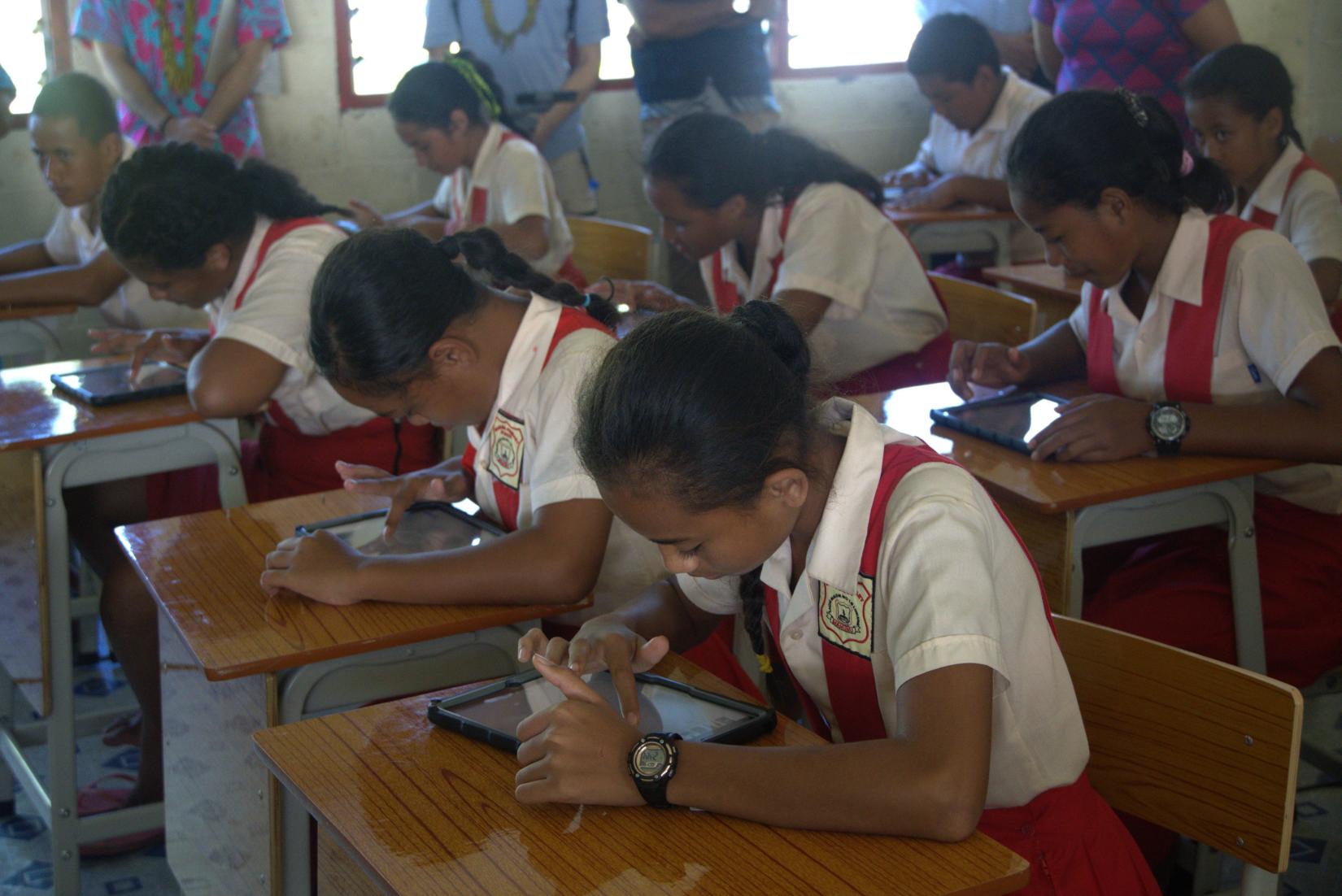
The Manunu Primary School opened its new school building in 2015 and while it’s a small school with around 81 students in one of the outer villages in Samoa, it is not left behind in all efforts to develop inclusive and resilient education systems.
Manunu Primary School is one of the 20 schools benefitting from a project that integrates Information and Communications Technology tools, increasing digital literacy for education, particularly for teachers to support blended teaching and learning and to enhance steps to redress the digital divide in education plans and strategies.
The project, Information Communication Technologies (ICT) in Education in Samoa: Developing Resilient Education System through Online and Multimedia as the Countermeasure against COVID-19 Pandemic was approved by the Government of Japan funding of US$ 954,545 and technical assistance from UNESCO for the implementation of the project over two years.
The selection of the 20 schools from Savaii and Upolu is based on their geographical location, low socioeconomic status, and gender imbalance, and includes children with learning disabilities.
This year, the installment and set up of equipment, and training for teachers have been completed and the schools are progressing into adapting online lessons to their normal school day schedules.
The 20 schools were visited to observe the progress of the project and the Manunu Primary School was the last school visited before the official closing of the project.
The Director for the UNESCO Pacific Office Ms Nisha said that, “the ICT in Education in Samoa project per se is coming to a close, but the work of integrating ICT in education is not over. Learning is a lifelong endeavor. ICT, or the technology itself, is only as effective as the users’ capacity to continuously apply it for promoting learning.”
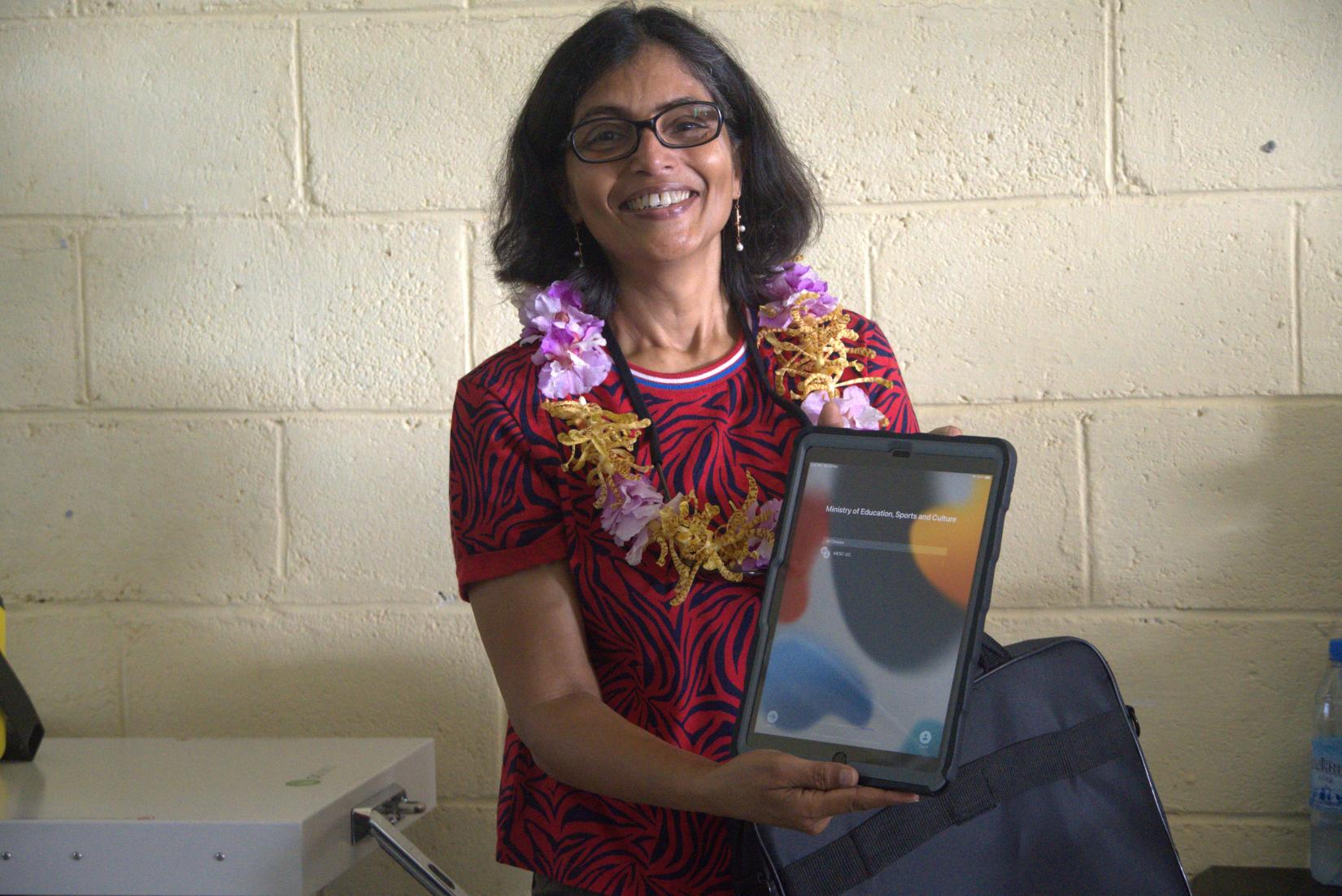
In a traditional reception, the chiefs of Manunu welcomed the delegation including the Japanese Ambassador Excellency Kensuke Senta, Ms Nisha and the Chief Executive Officer of MESC, Aeau Christopher Hazelman, and their staff.
They acknowledged this great assistance and the inclusion of their small school in the digital transformation journey, and they are committed to managing these resources with due diligence and attention to security.
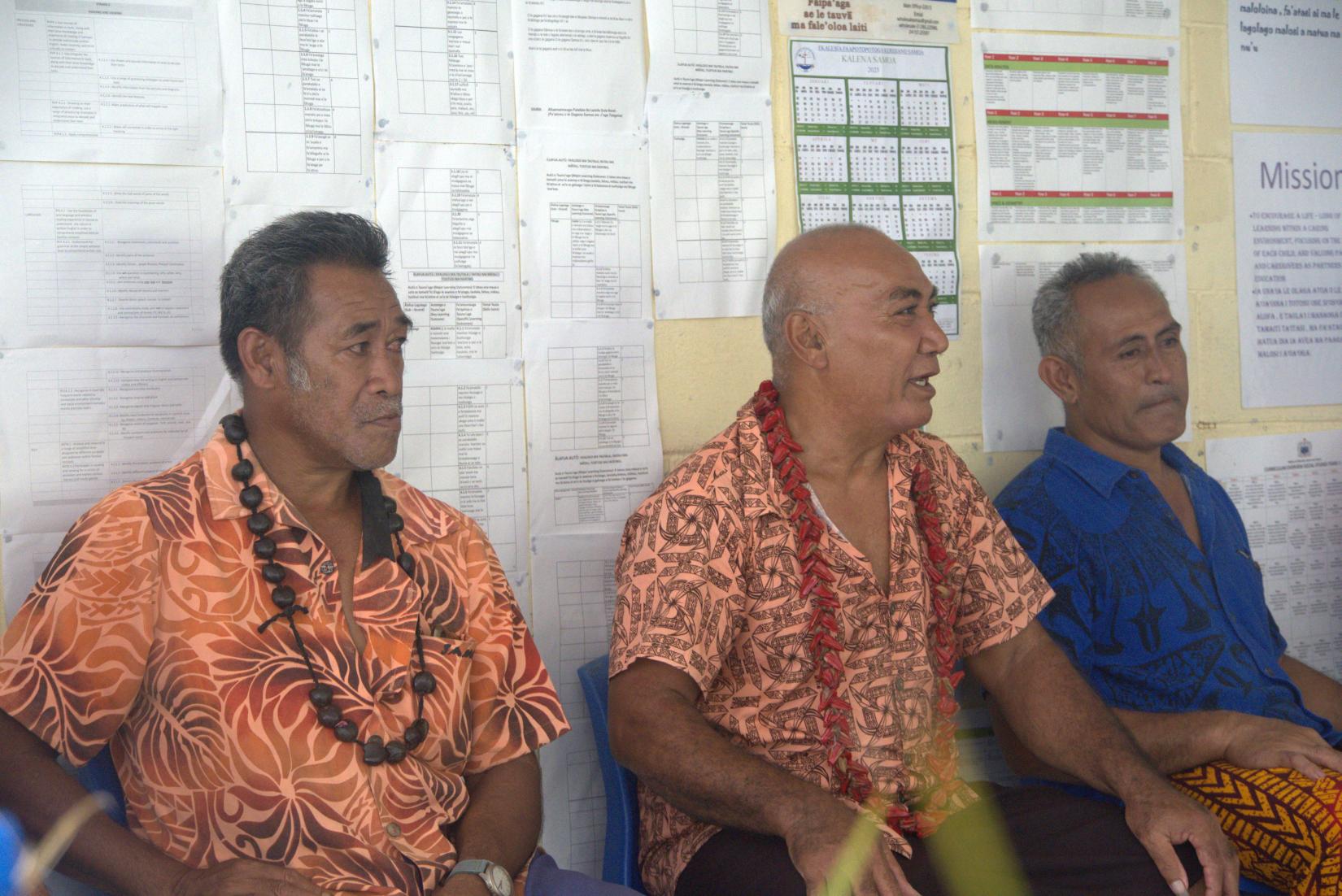
The delegation observed a demonstration of how devices, learning material and teacher training work together to enhance learning and teaching.
A’eau Christopher Hazelman encouraged the students that these resources are valuable for them as the world advances into digital transformation, and they must make good use of them.
“You students give us a purpose, and all these facilities and resources are for your educational pursuits so that you excel and achieve your dreams”, he added.
As a teacher himself, he reminded the students that “one of the most important skills for learning is to listen, we are given two ears and one mouth, so listening is more powerful.”
Excellency Keisuke Senta added to this by stressing the importance of critical thinking. He also stated the use of ICT in education will improve the “quality of education in many ways will open doors to a wealth of information, knowledge, educational resources, and training for capacity building of teachers in the use of new technologies.”
This project has installed a Wi-Fi system to operate the tablets and other digital resources for online learning lessons. The tablets has a safety and security system ensuring that they remain within the school compound and cannot be used outside of the school.
The schools Internet connectivity, tablet devices, networking equipment, projectors and laptops are worth over WST 1,375,000.00 (over USD 500,000) and the project has supported a range of trainings for different categories of users, including administrators, technical staff, teachers and students.
The ICT in Education project builds on the resources created through the UN Samoa Knowledge Society Initiative implemented jointly by UNESCO and UNDP, under the UNESCO specific outputs, namely, Soifua A'oa'oina, MESC's Innovative Lifelong Learning Lab (MILLL) and professional development resources housed virtually and physically in the Soifua A'oa'oina.
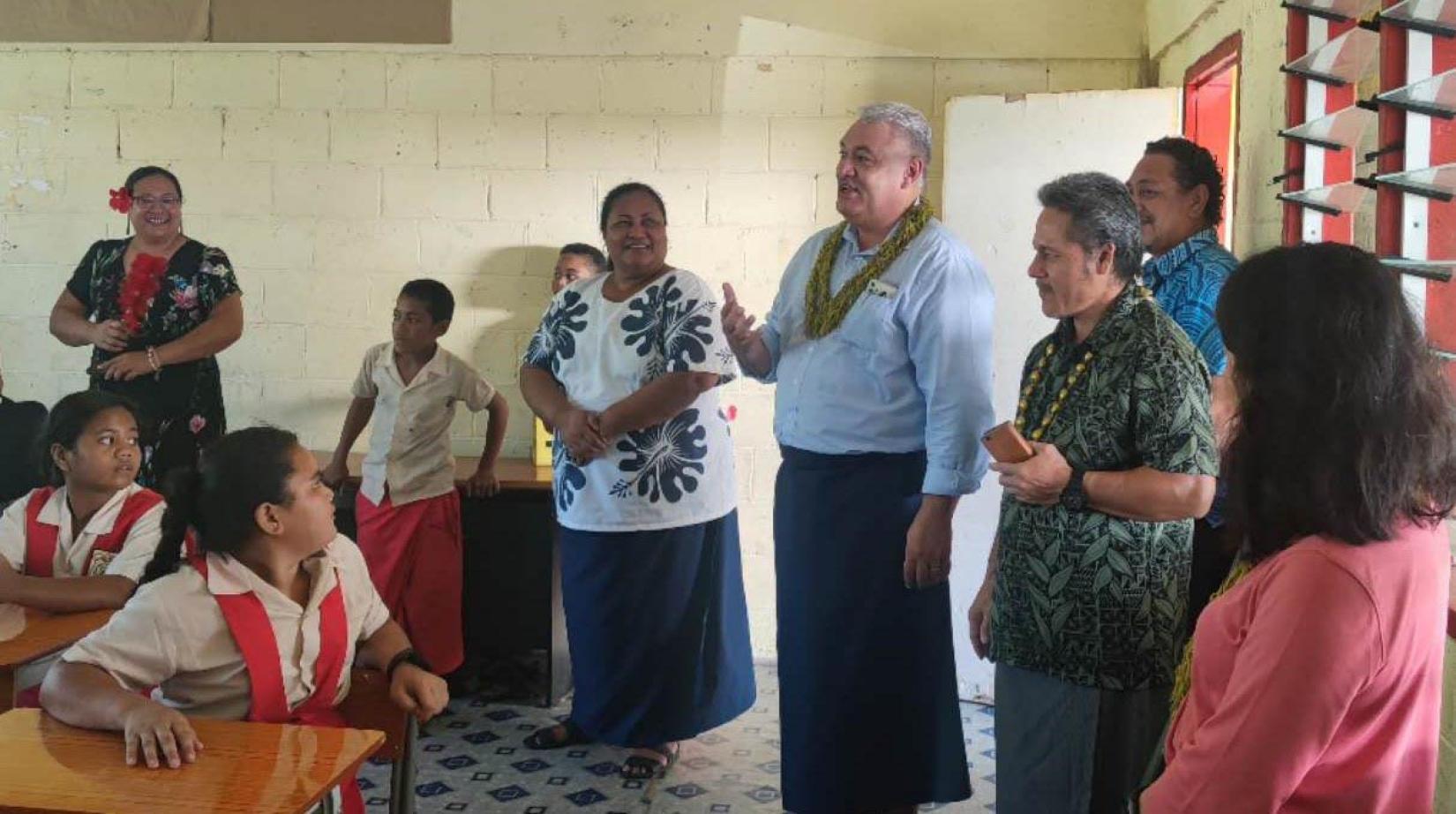
At the closing event, the students with disabilities who are also key beneficiaries received their tablet devices.
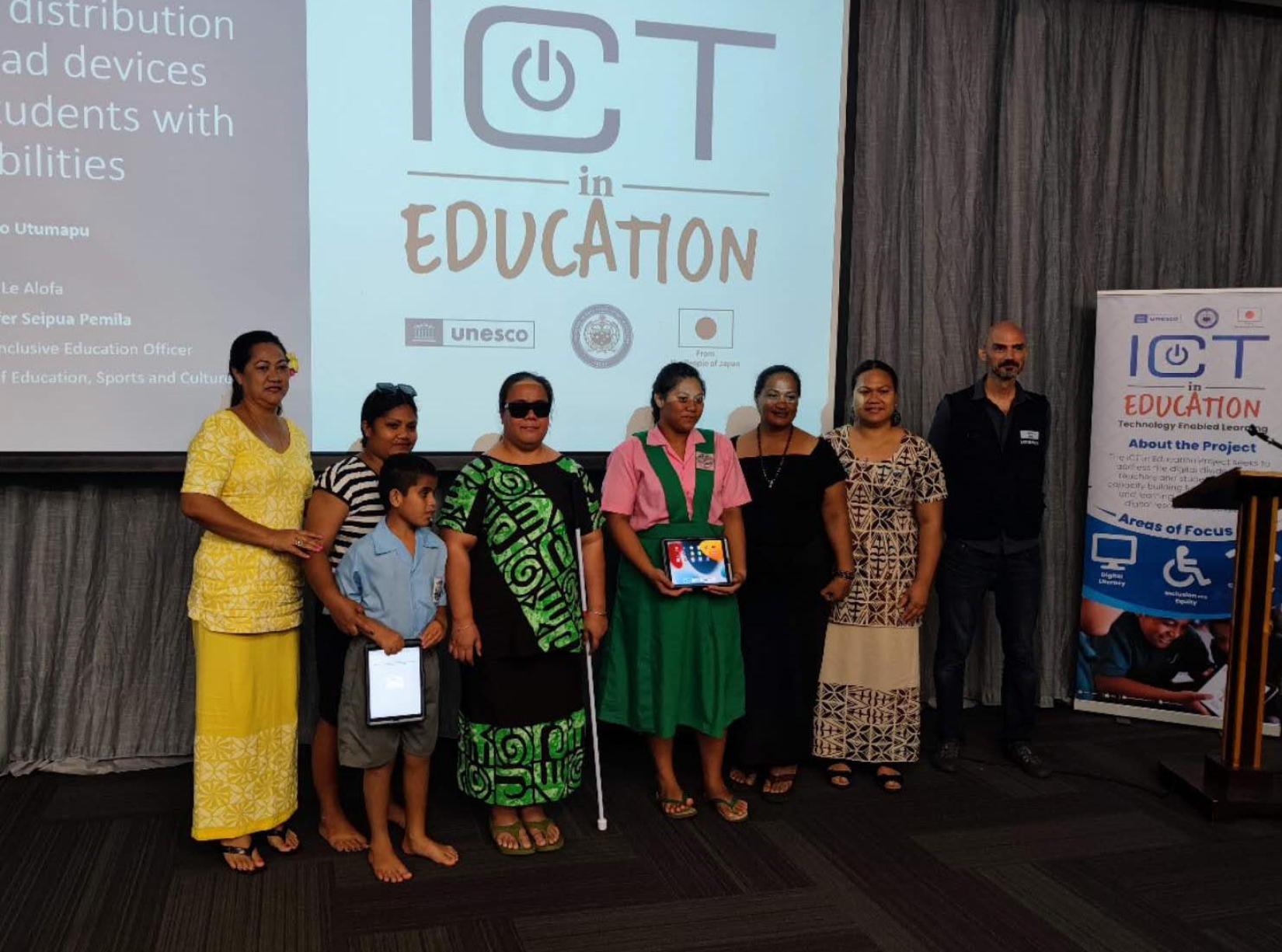
The project is expected to significantly enhance the quality of education in Samoa and equip students and teachers with the necessary digital skills to excel in the digital age.



